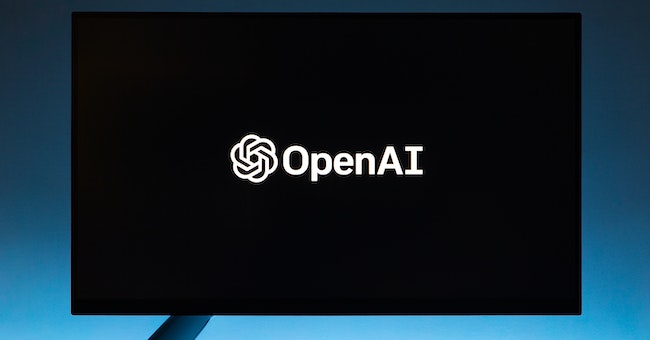ChatGPT in Education: How Can ChatGPT Help Teachers

The Impact of ChatGPT on Education
In today's rapidly advancing technological landscape, artificial intelligence (AI) has become an integral part of various industries. The field of education is no exception, as innovative AI-powered tools like ChatGPT have emerged to enhance the teaching and learning experience. In this article, we will delve into the impact of ChatGPT on education and explore how it can benefit teachers in various aspects of their work.
As an advanced language model developed by OpenAI, ChatGPT utilizes natural language processing to engage in interactive conversations. Its potential in education is vast, offering teachers and students new opportunities to explore and engage with knowledge. By enhancing lesson planning, streamlining assessment creation, facilitating homework assignments, increasing classroom interactivity, supporting individualized learning, fostering creativity and critical thinking, and promoting access to knowledge, it simplifies tasks for teachers, engages students through interactive activities, and provides personalized assistance. With its ability to generate creative responses and democratize knowledge, ChatGPT revolutionizes the teaching and learning experience.
How to Use ChatGPT for School
With its outstanding ability to assist various aspects of school education, ChatGPT has emerged as a game-changer in this regard. In this section, we will look into the numerous ways teachers can harness the power of ChatGPT to enhance teaching and learning experiences in an all-round manner.
Using ChatGPT to Plan Lessons
One of the key advantages of ChatGPT is its ability to aid teachers in planning lessons effectively. By engaging in conversations with ChatGPT, educators can brainstorm ideas, gather relevant resources, and explore different teaching methodologies. The AI-powered suggestions and insights provided by ChatGPT can inspire teachers to create engaging and dynamic lesson plans tailored to their students' needs.
Using ChatGPT to Write Test Quizzes
Designing assessments can be a time-consuming task for teachers. However, ChatGPT can alleviate this burden by assisting in the creation of test quizzes. Teachers can interact with ChatGPT to generate multiple-choice questions, essay prompts, and even solutions for complex problems. This saves valuable time and enables educators to focus on other important aspects of their teaching responsibilities.
Using ChatGPT to Assign Homework
Assigning homework that is both meaningful and relevant can be a challenge. ChatGPT can provide valuable insights and suggestions to assist teachers in designing engaging homework assignments. By leveraging the vast knowledge and resources available to ChatGPT, educators can ensure that homework tasks align with the curriculum, reinforce learning objectives, and promote independent thinking.
Using ChatGPT to Increase the Fun and Interactivity of the Classroom
ChatGPT can be an excellent tool to introduce interactivity and engagement into the classroom. By incorporating ChatGPT into classroom activities, teachers can encourage students to ask questions, seek clarification, and explore topics further. This not only enhances the learning experience but also fosters a collaborative and interactive classroom environment.
Should ChatGPT be used for school?
As with any technological advancement, the use of ChatGPT in schools has its own merits and pitfalls. Therefore, it is essential to consider these factors before deciding and carrying out the exact measures to teach with ChatGPT by your side.
Advantages of Using ChatGPT for School
Enhanced productivity and efficiency for teachers: ChatGPT enables teachers to streamline their workflow and save valuable time by automating certain tasks like lesson planning, assessment creation, and generating resources. This enhanced productivity allows educators to focus more on instructional strategies and individual student needs.
Personalized learning experiences for students: Through its interactive nature, ChatGPT can provide personalized guidance and support to students based on their unique learning styles and preferences. This personalized approach fosters individualized learning experiences, enabling students to progress at their own pace and explore topics of interest in greater depth.
Access to a vast repository of information and resources: ChatGPT grants students and teachers instant access to a wealth of information and resources. By leveraging its vast knowledge base, ChatGPT can provide quick explanations, answer questions, and offer additional references, empowering learners to explore various topics comprehensively.
Improved student engagement and motivation: Engaging with an AI-powered tool like ChatGPT can spark students' curiosity and increase their motivation to learn. The interactive conversations and instant feedback provided by ChatGPT make the learning experience more dynamic and interactive, leading to higher levels of engagement and participation.
Possible Disadvantages
Overreliance on AI tools leading to undermined critical thinking skills: While ChatGPT is a powerful tool, an overreliance on AI-generated content may reduce students' ability to think critically and independently. Relying solely on ChatGPT's responses without encouraging students to evaluate and analyze information from multiple sources could hinder their development of critical thinking skills.
Potential biases or inaccuracies in AI-generated content: As an AI model, ChatGPT learns from a vast amount of existing data. This means there is a possibility of inherent biases or inaccuracies present in the generated content. Teachers and students need to be mindful of this and critically evaluate the information provided by ChatGPT.
The need for training and guidance for teachers: To fully harness the potential of ChatGPT, teachers require proper training and guidance. Understanding the limitations and capabilities of the tool is crucial in order to integrate it effectively into the classroom. Professional development opportunities and ongoing support are essential for educators to maximize the benefits of ChatGPT.
Privacy and security concerns regarding student data: Using AI tools like ChatGPT involves the collection and processing of student data. It is important for educational institutions to ensure proper security measures are in place to protect student privacy and comply with data protection regulations. Safeguarding student information and ensuring transparency in data usage are essential considerations when using ChatGPT or any AI-powered tool in an educational setting.
How Should We Look at The Integration of ChatGPT and Education?
The integration of ChatGPT and similar AI technologies in education raises the question of how we should approach and view this phenomenon in a reasonable way. It is important to consider a balanced perspective that acknowledges both the potential benefits and the challenges associated with these tools.
First and foremost, we should recognize that AI-powered tools like ChatGPT are not meant to replace teachers. Instead, they should be seen as valuable resources and aids that can enhance the teaching and learning experience. Teachers play a crucial role in guiding students, providing human connection, and facilitating meaningful interactions within the classroom. AI tools should complement and support these roles rather than substitute them.
When adopting ChatGPT or any AI tool in education, it is essential to establish clear guidelines and ethical considerations. Educators, policymakers, and technology developers must collaborate to create responsible frameworks that ensure the ethical use of AI in the classroom. This includes addressing issues such as data privacy, algorithmic transparency, and bias detection and mitigation.
Furthermore, it is crucial to provide proper training and professional development opportunities for teachers. Educators need to familiarize themselves with the capabilities and limitations of AI tools, as well as learn how to effectively integrate them into their teaching practices. Ongoing support and guidance are necessary to ensure that teachers can make the most of these tools and adapt them to the specific needs of their students.
As with any technological advancement, we must also approach AI tools with a critical mindset. It is important to encourage students to think critically and evaluate the information provided by AI models like ChatGPT. Teaching students how to discern reliable sources, question biases, and validate information will empower them to become responsible digital citizens.
How to Learn to Use ChatGPT?
As a valuable learning resource for students, ChatGPT is equipped with endless facets of functionality. Here are several ways in which you can learn to utilize ChatGPT to enhance your educational journey:
Articles and Essays
One of the ways to learn how to use ChatGPT effectively is through articles and essays that provide guidance and insights. Numerous educational platforms, blogs, and websites offer informative articles and essays on leveraging ChatGPT in various educational settings. These resources delve into different aspects of utilizing ChatGPT, including best practices, case studies, and practical tips. By reading and studying such articles and essays, educators can gain a deeper understanding of the potential applications and strategies for incorporating ChatGPT into their teaching practices.
YouTube Videos
YouTube has become a valuable platform for learning, and it also offers a wealth of videos that can help educators learn how to use ChatGPT for educational purposes. Educational content creators and technology enthusiasts often share tutorials, demonstrations, and insights on their YouTube channels, providing step-by-step instructions and practical examples of implementing ChatGPT in the classroom. By watching these videos, teachers can visually grasp the functionalities of ChatGPT and witness its real-world applications, making it easier to adopt and integrate into their own teaching methodologies.
Online Courses
Online courses dedicated to ChatGPT and its educational applications have emerged as a valuable resource for educators seeking comprehensive and structured learning experiences. These courses are designed to cater to different skill levels, from beginner to advanced, and cover a wide range of topics related to ChatGPT in education. Participants can explore topics such as the fundamentals of ChatGPT, effective lesson planning with ChatGPT, and assessing student work using AI tools. By enrolling in these courses, educators can engage in guided learning, interactive exercises, and collaborative discussions, gaining the knowledge and skills required to utilize ChatGPT effectively.
Speaking of which, to get an overall understanding of ChatGPT-related knowledge, AZClass offers a wide selection of courses designed to help you master these tools and start bringing your ideas to life. With AZClass, you can always find a course that fits your specific needs and learn at your own pace, building your skills and confidence along the way. In the ChatGPT Online Course Catalog, we have gathered useful courses for you to embark on the journey of brainstorming. In particular, here we have a couple of courses that are definitely worth your attention:
Complete ChatGPT Tutorial - [Become A Power User in 30 Minutes]
The course aims to teach learners about the 10 major types of commands that can be given to ChatGPT to maximize its potential as a powerful tool. It covers various aspects, including navigating the interface, issuing commands, and obtaining the best answers from ChatGPT. Additionally, the tutorial offers two tips to improve the quality of the answers received.
Pros of this course:
Efficient and Time-Saving
Comprehensive Coverage
Step-by-Step Video Guidance
Tips for Better Answers
Free of Charge
Instructor and Provider Reputation
Quick Skill Acquisition
Lazy Questions Crazy Answers using ChatGPT
The "Lazy Questions Crazy Answers using ChatGPT" course is an online course that focuses on teaching learners how to effectively use ChatGPT, an Artificial Intelligence (AI) model, to generate intelligent content. The course aims to enhance learners' efficiency by utilizing ChatGPT for conducting research and obtaining valuable information. It is designed to provide learners with the necessary skills to ask lazy questions and maximize their use of ChatGPT.
Pros of this course:
Online Learning Advantage
Intelligent Content Generation
Efficiency Enhancement
Research Skills
Better Understanding and Application
ChatGPT Chrome Extensions
ChatGPT Chrome extensions have been developed to enhance the accessibility and usability of ChatGPT directly within web browsers. These extensions provide teachers with a convenient way to utilize ChatGPT during their online research, lesson planning, and content creation. By installing and utilizing these extensions, educators can have quick access to ChatGPT's capabilities without the need to navigate to a separate platform. The extensions allow for seamless integration of ChatGPT into various online workflows, making it easier for teachers to leverage its potential in their daily teaching activities.
For more intuitive and inclusive guidance in this regard, please check out AIPRM Online Course Catalog where you can expose yourself to an entire encyclopedia of know-how about ChatGPT Chrome Extensions.
AIPRM for ChatGPT - Multi-Community Version - Overview Version 01112
AIPRM for ChatGPT is a powerful online learning platform designed to help users create and manage their own custom chatbot prompts. This particular version, the Multi-Community Version - Overview Version 01112, focuses on providing 1-click prompts for various fields such as SEO, Marketing, Copywriting, Software Engineering, DevOps, and more. It aims to enhance productivity and offers an easy-to-use tool for generating chatbot prompts.
Pros of this course:
Customization
Multiple Communities
Easy Access and Management
Wide Application
Free of Charge
Conclusion
ChatGPT holds great promise in the field of education, offering a multitude of benefits for both teachers and students. Its impact on education spans various aspects, from planning lessons to increasing interactivity in the classroom. By leveraging ChatGPT's capabilities, teachers can enhance their productivity and efficiency, personalize learning experiences, access a vast repository of information, and foster student engagement and motivation.
However, it is crucial to approach the use of ChatGPT in schools with a balanced perspective. While the advantages are significant, it is important to acknowledge the potential drawbacks as well. Overreliance on AI tools may hinder critical thinking skills, and the presence of biases or inaccuracies in AI-generated content can affect the learning process. Therefore, teachers must receive proper training and guidance to effectively navigate the use of ChatGPT, ensuring its seamless integration into the educational environment.
As we contemplate the role of ChatGPT in education, it is essential to view this phenomenon in a reasonable way. Rather than viewing it as a replacement for teachers, ChatGPT should be seen as a powerful tool that can augment their teaching strategies and expand their pedagogical approaches. Embracing technology like ChatGPT allows educators to adapt to the evolving needs of students, foster creativity, and cultivate critical thinking skills.
At every level of education, from elementary schools to higher education institutions, ChatGPT has the potential to revolutionize the learning experience. By harnessing its capabilities, educators can create inclusive, engaging, and personalized learning environments that cater to the diverse needs of students. In other words, this technology empowers teachers to navigate the complexities of the modern educational landscape and prepare students for the challenges they will face in the future.





